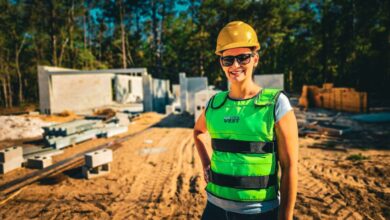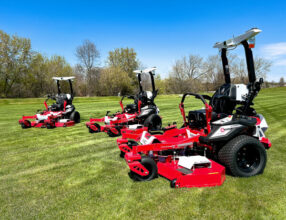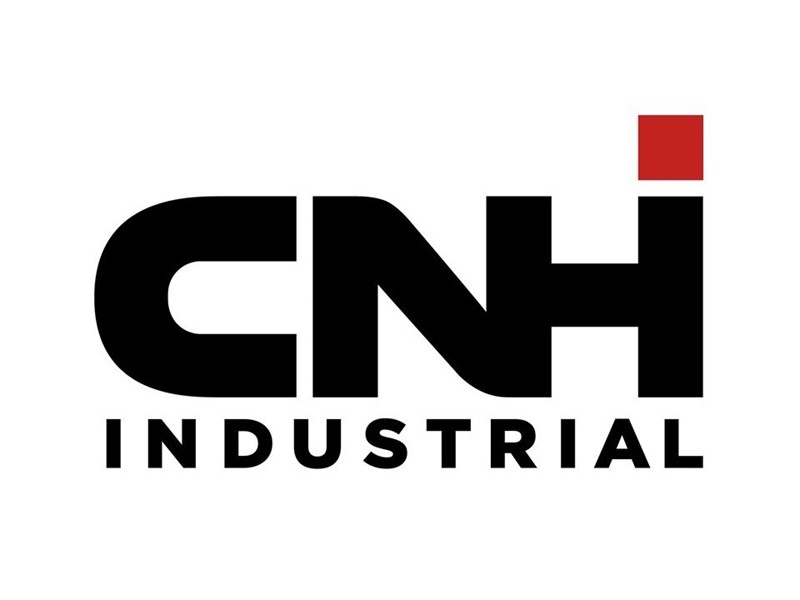Propane Potential
Interview: Michael Newland, Propane Education & Research Council
We first met Michael Newland of the Propane Education and Research Council at the OPEI annual meeting last summer. Following this year’s Equip Expo, we spent more time talking with Newland about the state of propane in today’s power equipment market. We edited that online conversation for clarity and length.
OPE Business: When talking about propane in today’s power-equipment market, is this a question of batteries v. propane as a power source?
Michael Newland: I think people get lulled into a spot where they’re feeling very good because they’re charging a battery. When you don’t see the smoke coming off the coal plant generating that electrical power, you feel pretty good about it. Propane is going to be cleaner than that electric grid, and in many cases by a significant amount.
Gasoline and diesel are the dominant forces in this space, I don’t want to make it sound like we’re going to take 90% of the market back from electric because it’s not there yet. Of all the spaces we could be today, from all the power options, I’ll take the spot that we’re in versus gas, diesel, or electric power.
OPE: Let’s quantify that spot you’re in right now. In the world of landscape professionals, how many are using propane?
Newland: Some fleets in the top 50 companies in the country are using our fuel exclusively and doing it very effectively. By that I mean the engines are performing as intended. And we do have a huge fuel cost advantage over gasoline and diesel fuel. From an emissions standpoint, those crews are able to work any day that they want. They don’t have to worry about attainment days with propane because it’s clean enough they can cut even when big cities have attainment zones on certain days due to weather. So their uptime is significantly better.
Objections to Propane?
OPE: What objections do commercial users have to implementing propane?
Newland: Some users want to stop at the corner gas station and grab fuel and a coffee. With propane, you have to do more planning. But look at the benefits, the cleanliness of the fuel, the emissions are clean, the engines stay cleaner. You can stretch service intervals because our fuel doesn’t carbon up on the inside of that engine like other fuels do. That’s a big win. Fuel loss in the industry has been challenging for some. You know, while the crews are at the gas station, maybe a gallon or two goes somewhere it shouldn’t. Those issues go away with propane; we don’t have any theft problems.
OPE: How about the cost of implementation?
Newland: When it comes to fuel cost, the guys using it now are never leaving propane. They are winning on a cost basis. The economics favor propane. The emissions favor propane. There are a lot of positives. Do we wish there were more OEM offerings? Absolutely. Today, every unit run on propane around the country is from an engine conversion. We continue to talk to the OEMs about that. Would it be easier if we could get that from the OEM? Absolutely it would be. But we have proven companies making proven products, and they’re performing incredibly well.
At one time, most OEMs had a SKU that ran on propane. But with supply chain issues, especially during COVID, they were worried about getting gasoline engines out. They focused on the gasoline market. That was the overriding message with some of the folks I met with at Equip Expo this year. They’re finally in a spot where there are enough engines to go around in the space. Last year, everybody was still scrambling for engines.
Editor’s Note: Scag sells a model of its Turf Tiger II powered by a Kohler Command Pro EFI Propane engine.
Conversion Kits?
OPE: What might be the cost for a conversion kit, and a storage unit for the tank, etc.
Newland: You can find conversion kits anywhere starting from around $800. That converts a gasoline engine to propane. If a commercial cutter is thinking about making that switch, they need to reach out to a local propane company and work out the infrastructure. It’s not a big lift. But it does require they use certain cylinders on the mowing equipment. Depending on the size of the business, they could use a tank exchange program if they’re small, or if they’re large enough cutter, they may put in a refueling station at the property to let the folks refuel their own cylinders. All those opportunities are discussed at the local level with their local propane supplier.
Beyond OPE?
OPE: Talk about the bigger picture for propane, beyond outdoor power equipment. What’s going on in other markets?
Newland: A lot of what I do is in the agricultural space. The emissions regulations are being increased everywhere. And that helps propane. As much as we personally don’t like governments continuing to crank emissions to really tough levels, it gives propane an opportunity. I’m talking about on-road regulations being increased in 2027, and other regulations being increased again in 2028, that gives us an opportunity to meet those new regulations without much additional equipment on those engines. When you look at a diesel engine for 2027, or 2028, it’s going to be a very challenging for that engine to meet those new emissions requirements set by EPA. The good news is propane is in a good spot to be able to deliver on those new regulations.
OPE: What’s the best success story overall for propane?
Newland: We have propane-powered school buses all over the country transporting more than a million and a half kids daily. That’s a small percentage and but it’s growing every single year. The buses are priced slightly above a gasoline bus, and slightly less than a diesel engine. And they’re performing incredibly well. That gives people confidence in our field.
Propane Production?
OPE: What are our sources of propane and how is the U.S. supply today?
Newland: Propane is a byproduct of natural gas processing. And the backstory is we’ve got a lot of it. We export 60 plus percent of the available propane today; it leaves the U.S. and goes elsewhere to be consumed. One of our missions is to find new uses and users of propane. It’s good for our environment here in the US. And it’s good for the economy.
OPE: That refining process can be volatile, both economically and politically right now. Is this a stable fuel source, long term?
Newland: We do have the detractors who want to link us to the fossil fuel market and the volatility there. But we can get to a science-based conversation about emissions and what grid carbon intensity looks like, I think a lot of folks should be moving toward propane, not trying to push it away. We have got a great white paper on the grid and the carbon intensity around that. You can look at that.
OPE: One thing that I appreciate about this time in this industry, with electrification in particular, is that we’re all talking more specifically about a range of power sources. And that can be to your advantage. Right?
Newland: In some places, batteries make sense. I have a gas-powered trimmer and a gas-powered leaf blower; I’m probably going to keep them. I used to live on four acres. Not anymore. And I’ve kept my gas-powered tools – just because. Do I need those where I live? No. My yard could be mowed with an electric push mower. But like I said, I think people are missing the carbon story. Just because it’s plugged into the wall, doesn’t mean it’s clean. You know, it’s all dependent upon where your electricity is produced and how it’s produced. Propane is cleaner.
Renewable Propane?
OPE: Are there different qualities of propane manufactured through the refining process? Or is it all just propane?
Newland: It gets pretty difficult. And I’m gonna throw this out there, though we don’t have time to discuss it. There is renewable propane that comes from renewable sources, the processing, and if you think about a facility that may make renewable diesel fuel, or sustainable aviation fuel, that’s those are the types of facilities that produce renewable propane. We can talk about that down the road.
Biography
Michael Newland is director of agriculture business development for the Propane Education & Research Council. Newland promotes propane use for agricultural markets. He facilitates the adoption of propane-powered equipment, appliances, and vehicles through market development and product development to preserve existing markets and develop new growth opportunities.
Prior to this role, Newland served as National Sales Manager for Business Development at AgYield, a full-service revenue management company for growers based in Illinois. Prior to AgYield, he was Vice President of Sales and Operations for the Midwest USA Division of MagGrow, and he worked as the Director of Field Operations and National Agronomist for Wilton Agriculture Strategies.






